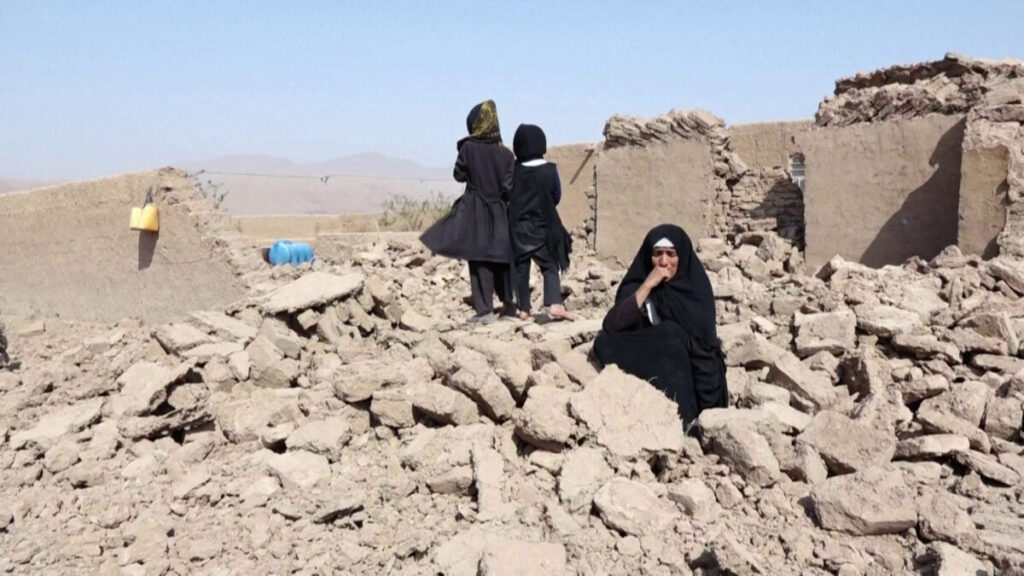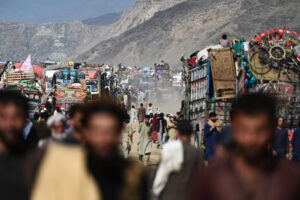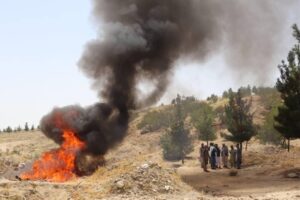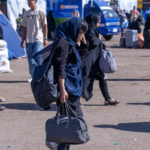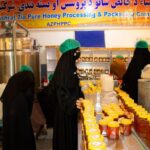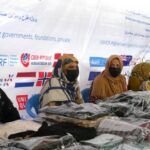A year after the deadly and continuous earthquakes in Herat province, western Afghanistan, many families and individuals who lost family members and property, as well as their homes being destroyed, are criticizing the lack of support from international organizations and the interim government of Afghanistan.
The earthquake victims state that they still do not have access to basic living necessities and are suffering greatly from their current conditions. They cite the lack of adequate shelter, insufficient healthcare facilities, absence of educational centers, and limited access to drinking water as their main challenges, calling for assistance from international organizations, national traders, and the government.
Zalmai Farooqi, a resident of Nayeb Rafi village in the Zenda Jan district of Herat, is 35 years old and had four children. He lost two daughters in the earthquake, aged between 10 and 15 years. The village where Zalmai lived was nearly flattened by the continuous earthquakes.
With a heavy voice and choked throat, Zalmai told the media that he is still in shock and has not been able to forget the immense suffering that the earthquake has imposed on them. He says, “I see my daughters almost every night in my dreams, and this has become a painful nightmare for me.”
He stated that he lost his home and all his belongings in the earthquake. Criticizing the organizations and government, he mentioned that many promises were made to them after the earthquake, but few have been fulfilled. As a result, even after a year, they continue to struggle with numerous problems.
He also harshly criticized the houses that were constructed for him, emphasizing: “The houses they built for us are just shelters. There are no walls around them, no water, and no electricity. They don’t even have a toilet. Winter is approaching, and we cannot afford to build walls around our homes. Additionally, the prices of construction materials have skyrocketed.”
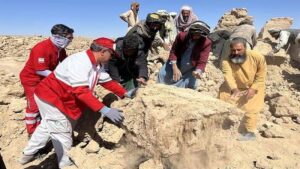
Government and Organizations’ Promotional Perspective on the Victims
Shah Mahmood, another victim of the devastating Herat earthquake, shared his struggles with the media outlet Goharshad, stating, and “We walk half an hour on foot we are facing many challenges. However, the government and international organizations are completely indifferent to our problems. They are only focused on publicity and baseless activities, neglecting the essential needs of the people.”
Shah Mahmood expressed that they are still confronted with numerous issues. He mentioned that the houses built for them by the government and some traders lack surrounding walls, creating significant problems for families both during the day and especially at night.
He noted that for several months, the people of this village have received no assistance from the interim government or aid organizations, and they are facing severe food and health challenges. Shah Mahmood criticized the aid organizations for “turning their backs” on earthquake victims in Herat, showing no concern for their basic needs.
This comes in the wake of a powerful earthquake measuring 6.3 on the Richter scale that struck the Zenda Jan district of Herat on October 7 last year. In the following days, similar earthquakes once again shook Zenda Jan and other districts in Herat, leaving widespread destruction and casualties in their wake.
According to international organizations, approximately 1,500 people lost their lives in these earthquakes, over 2,600 were injured, and thousands of homes were destroyed. The occurrence of these earthquakes has left thousands homeless and displaced.
After these earthquakes, the United Nations, aid organizations, and the current government repeatedly announced plans to assist victims and construct shelters for them; however, it seems that these efforts have not been able to meet their extensive needs.
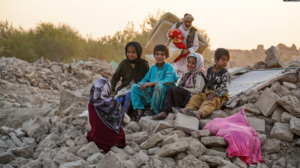
96,000 Vulnerable Children Affected by the Earthquake
UNICEF, the United Nations Children’s Fund, recently released a report stating that one year after the earthquake in Herat, 96,000 earthquake-affected children in the province remain at risk and require further support. The report highlighted that most victims of this disaster were children and women, emphasizing the need for increased assistance for children.
UNICEF stressed that the situation of earthquake victims in western Afghanistan is dire. The report continued to state that in the year following the disaster, UNICEF prioritized rebuilding damaged water supply systems, restoring classrooms, and ensuring uninterrupted health and nutrition services for children and women.
The report indicated that over one million people have accessed healthcare through medical teams supported by UNICEF, including 400,000 children under five years old. UNICEF restored access to clean drinking water for 21,600 individuals and installed sanitation facilities for 25,000 people.
The report concluded: “Children cannot thrive without reliable essential services, especially climate-resilient water systems. In areas like Herat, which have been severely affected by drought and are still recovering from earthquakes, we must ensure that communities have access to safe drinking water.”

